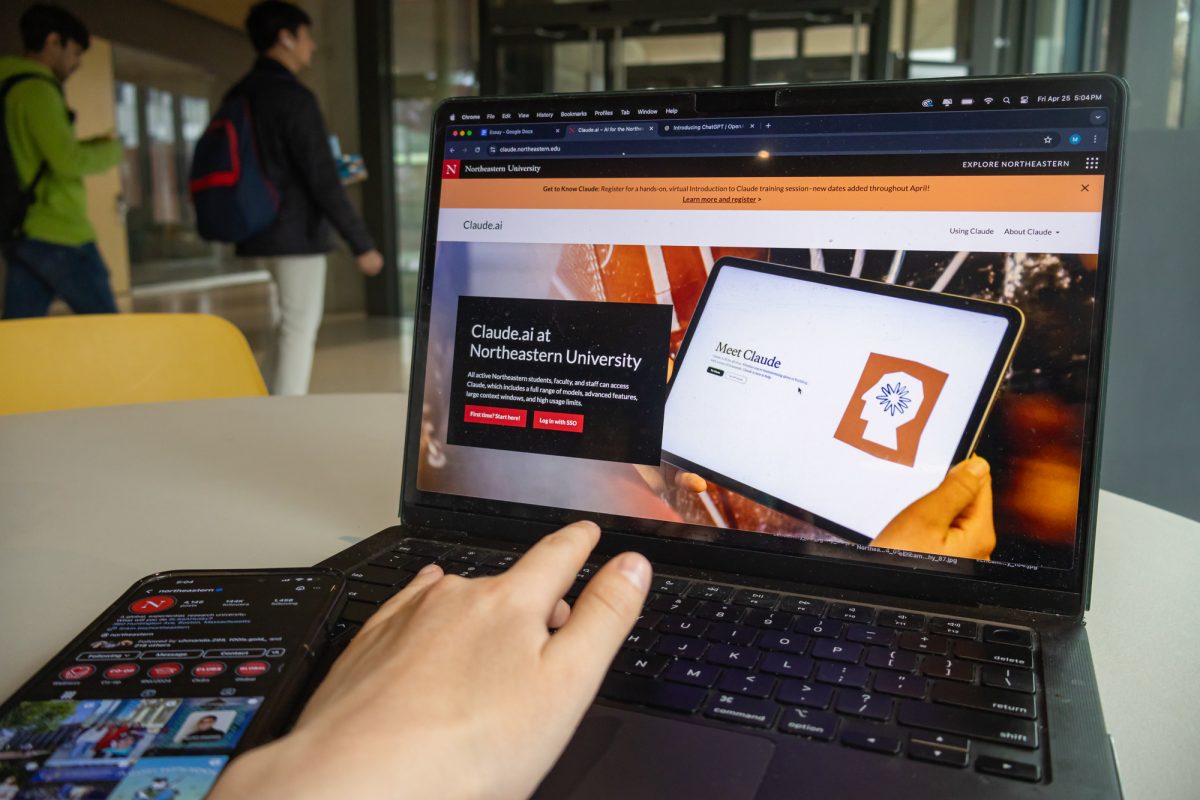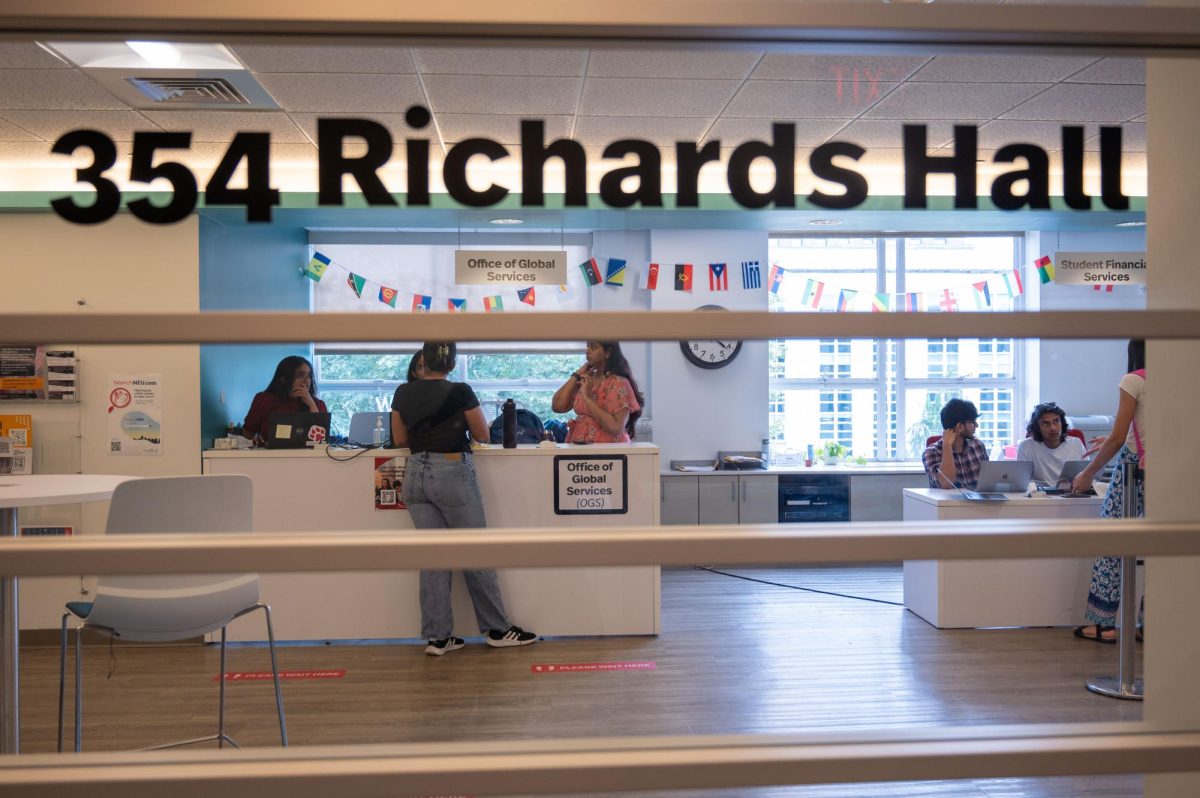The Huntington News publishes the Crime Log in each issue, a collection of selected entries from the Northeastern University Police Department’s (NUPD) public log of reported criminal activity. Though sometimes entertaining, the column serves a serious purpose: to inform and caution students about crime trends around campus. Frequent, consistent reports of on campus theft reveal a troubling area of unmet need from Northeastern’s Public Safety Division. Should Northeastern be doing more?
All things considered, the Northeastern University Division of Public Safety has excelled in preventing violent crime and continues to do a great job of protecting students from harm and danger. Thankfully, many Crime Log entries detail only minor violations that, although concerning, are to be expected at a large, urban university. In fact, the low number of serious incidents on-campus earned recognition from Reader’s Digest, which gave Northeastern an “A” grade and ranked the university the second safest campus in the country in their 2008 College Safety Survey.
However, the Crime Log in this issue alone features 10 stories related to theft. Considering some thefts may have gone unreported, and the smaller number of students on campus for the summer, this is a high number. These crimes are happening in and around the heart of campus, the library and the student center. Even the Northeastern men’s hockey team was a victim of burglary and theft last month.
NUPD, in its annual report of crime statistics, boasts incredibly low numbers of violent crimes on campus and officers deserve congratulations for this accomplishment. Although the numbers for reported robbery and burglary are relatively low, at around 40 incidents per year, they do stick out among an otherwise impeccable record.
How can the Public Safety Division better address the continuing problem of on-campus theft? Defining the problem is a good place to start. Better public reporting and tracking of statistics specifically addressing theft, in addition to burglary and robbery, will call more attention to the problem and will give the issue more scrutiny. The numbers might increase the pressure to make improvements.
Note: Burglary, the act of illegal entry to a building with intent to commit a crime, differs from robbery, which is theft with the threat or use of violence. Statistics about non-violent thefts are not currently reported in the annual report.
Many police departments, including the Boston Police, maintain a Twitter feed that allows them to respond to questions and post up-to-date information. Implementing instant notification technologies into myNEU or NUPD’s website would be welcome changes that could have widespread benefits across the spectrum of campus safety. Currently, NUPD has procedures in place for emergency notification, but lacks an accessible, running feed of information about crimes like theft. Better reporting enables students to be more aware and more vigilant, and may even be a way for students to recover their belongings.
Less than 30 students a year are charged with and found responsible for both breaking and entering and theft, according to statistics from Office of Student Conduct and Conflict Resolution (OSCCR) over the past three years. The discrepancy between the presumably large number of theft incidents that take place and the number of students found responsible by OSCCR points to two possible explanations: Either a lot of students are getting away with this crime, or students aren’t the ones committing the crimes.
This means Northeastern needs to identify and permanently remove thieves from campus. The College of Criminal Justice may no longer exist, but that doesn’t mean that students don’t want to see justice served to those who commit crimes on campus. The large number of students who have had bikes or laptops stolen would surely support an initiative that would sting professional laptop and bike thieves who work in and around campus. Prosecuting these theives, whether they are students or not, sends a firm message that they are not welcome to prey on Northeastern.
Having any item stolen can be extremely frustrating to a student. In addition to the immediate and significant financial impact, it can have long term effects from stress and worry. It can dramatically set students back in their studies and place them at high risk for identity theft. For them, the image of Northeastern as a safe place can be irreparably damaged, and this distrust can ripple throughout the community.
Vulnerable populations, such as international students and summer visitors who may be unfamiliar with safety precautions in a large city, have been the victims of a number of thefts that have resulted in loss of important personal documents and passports, and large sums of money. Guests to our campus should not be seen as easy targets for thieves. Adequate policing and education are both necessary to ensure their safety. All students should share the responsibility for keeping an eye out for one another on campus, but the responsibility for providing a safe and secure atmosphere where theft is not tolerated falls on the Public Safety Division.
Students should expect more from officers. Theft victims are understandably critical of NUPD, especially when officers are seen texting or checking their e-mail in International Village while student belongings continue to disappear. Ensuring that the police force is adequate, visible and not distracted will at least bolster student confidence that they are protected at Northeastern, and at best, actually prevent crime.
Although the blame for a theft should never belong to the victim, there is no excuse for not taking appropriate precautions to thwart thieves, especially in public areas of campus. This means locking bikes securely and not leaving valuables unattended for any reason. NUPD provides useful information on its website about property security, and offers free use of engraving devices for students to use to permanently identify bikes and other expensive items.
InfoCommons warns students about their laptops: “Leave it, lose it,” but with stricter policies in place regarding theft, and more action from NUPD, the consequence of such negligence can be less harsh and less certain.








